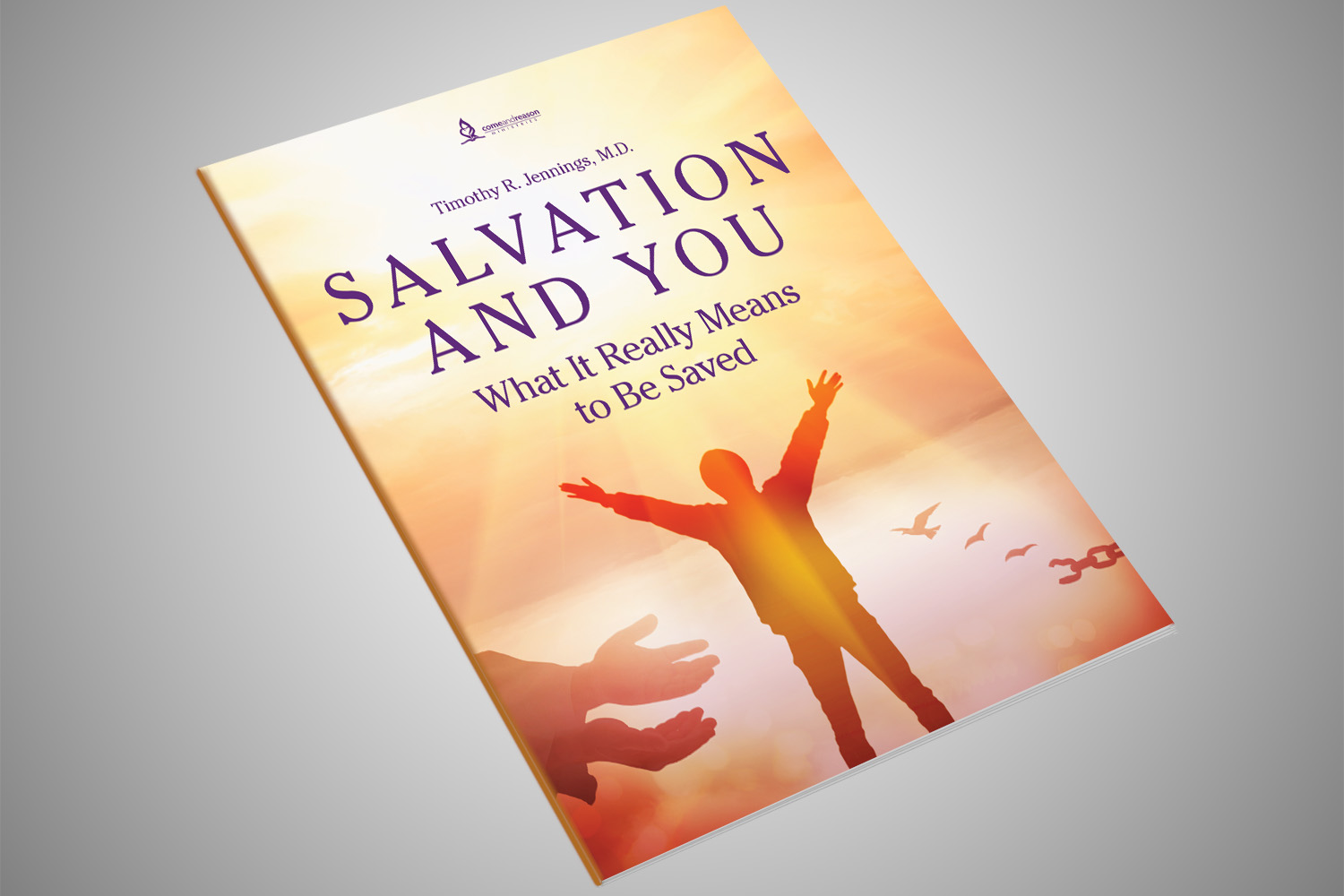Have you ever had the experience of discussing or studying the Bible with someone who doesnãt believe the way you do? Have you ever had difficulty coming to common understanding? Have you ever felt frustrated with the experience, as though something was in the way of furthering the pursuit of truth, but you couldnãt figure out what it was?
Over the years, I have had thousands of discussions with people from a wide variety of backgroundsãChristians of my own denomination who see things differently than me, Christians from other denominations, Muslims, Jews, Hindus, and atheists and agnostics. These conversations have ranged from encouraging, uplifting, and rewarding to discouraging, argumentative, and frustrating. Sadly, throughout my life, I havenãt always maintained a calm and patient demeanor; sometimes, I have become quite animated and even irritated. While I do acknowledge my immaturity in those circumstances, I also realize that it was often the case that those conversations in which I was most disturbed were the ones that motivated me to do the greatest introspection, study, and growth.
So, if you are a person who had such a frustrating conversation with meãthank you! You have been a blessing to me by challenging my thoughts.
ô
Learning to Be Introspective
In the aftermath of these conversations, I have developed a process for my own growth and development. If I do not come into agreement on the subject being discussed, I will often do a deep dive to reexam the basis and evidences for my position and the one held by the other person. Why? I want to ensure that my disagreement isnãt due to my personal bias, preconceived idea, assumption, misunderstanding, or traditional way of thinking, but only because of truth.
When my understanding has been challenged, it has routinely motivated me to examine not just what I believe but also the basis for my beliefs.
- Are my beliefs grounded in the evidences and revelations that God has provided?
- Are my interpretations and conclusions consistent with the entire weight of evidence?
- Do my beliefs require me to ignore parts of the inspired record, or does my understanding accept all the record and integrate it accurately?
I have found that this process has been essential for my spiritual growth and development.
Throughout my life, God has used people to challenge my way of thinking many times as a means of helping me to purify my mind by solidifying with deeper reasons the truths that I hold, but also to eliminate from my beliefs misunderstandings and falsehoods.
Some of my greatest personal growth in my relationship with God and my understanding of the Bible came during my residency in psychiatry, when I was constantly challenged by many of my atheist professors. Their criticisms of my beliefs drove me into thousands of hours of deep Bible study in which I searched for Godãs design for our minds and hearts and His principles for healing. Their challenges did not result in me giving up my belief in God, but they required me to go beyond my childhood faith to a faith rooted in mature understanding, an understanding of why Godãs truths are true, not just that they are true.
Indeed, the persistent challenges to my beliefs by my atheist professors led to the writing of my first book, Could It Be This Simple? A Biblical Model for Healing the Mind.
For instance, while a child can be told that 2 + 2 = 4 and they can memorize that truth and recite it, knowing that truth is not the same as knowing why it is true. Memorizing answers to math problems (even when those answers are correct) is not the same as knowing how to do math; it is not the same as understanding addition, subtraction, division, multiplication, etc.
God wants each of us to mature and grow up to not only know true facts, but He also wants us to know why His truths are true. God wants us to understand the design laws He built into the operations of reality and be able to discern for ourselves why something is right or wrong (Hebrews 5:14).
ô So the first recommendation I have when you find yourself studying with someone of a different view or faith is to examine your own beliefs in light of Godãs Word and strengthen those beliefs that are true by developing a deeper understanding of why they are true. While doing so, seek to identify any beliefs that are inaccurate or misunderstood and replace them with better ones (something I have had do on more than one occasion).
ô
Consider Your Audience
In addition to examining my beliefs, studying with others has motivated me to reflect on the obstacles that prevented us from coming to an agreement. Was it only that I had misunderstandings, or were there other barriers? Over the years, I have discovered a long list of obstacles that have interfered with unity, with agreement, with coming to a consensus with others. And I thought this list might be helpful to some of you if you ever feel frustrated in your discussions with others.
One of the first factors to consider when studying with someone is their capacity to comprehend and understand complexity. Not everyone has the same innate ability to think through things; furthermore, they might be limited by where they are in their spiritual development. Just as small children with good hearts are not capable of comprehending complex ideas, so also babes in Christ need to assimilate the elementary teachings before they can appreciate the more complex truths.
Jesus Himself said to His disciples,
I have much more to say to you, more than you can now bear (John 16:12 NIV84).
I have had discussions with people who demonstrated significant difficulty with abstract thinking. They think in extreme literal or concrete ways and have a hard time comprehending the deeper truths taught in parables, object lessons, symbols, and metaphors. A concrete-thinking person might hear me say, as I clear my throat, ãExcuse me. I had a frog in my throat,ã and think I was eating amphibians. When I discern that I am dealing with such people, I limit my attempts and truncate the conversation.
In addition to considering the intellectual or spiritual capacity of the person you are in discussion with, also consider their heart and motive.
Jesus said,
Do not throw your pearls to pigs. If you do, they may trample them under their feet, and then turn and tear you to pieces (Matthew 7:6 NIV84).
Jesus also told His disciples that if they entered a town in which the people didnãt want to hear the good news they brought, they were to shake the dust off their feet and move on (Matthew 19:14). And before the Sanhedrin, a group of Jewish theologians, Jesus remained silent because He knew they were not seeking truth but only wanted to twist His words against Him.
So donãt feel obligated to enter into a discussion with every person who attempts to engage you. Use your discernment to assess if this is a reasonable conversation to have.
ô
Obstacles to Agreement
But even when we are having a discussion with people who are intellectually capable, are honest of heart, and are interested in pursuing truth, it is often the case that something else interferes with mutual understanding. Below are other factors that I have discovered that obstruct agreement and understanding. If these are not addressed, they almost always prevent the two parties from coming to a consensus.
- Disagreement about the source material. From what data set are we gathering our evidence, facts, and other information? If we have different data sets, different source materials, we will almost certainly come to different conclusions.
- Disagreement about what constitutes ãscripture.ã Are the underlying scriptures the 66 books of the Old and New Testament? If someone includes other sourcesãthe apocrypha, pseudo-apocrypha, Book of Mormon, Koran, or other writingsãas scripture in their beliefs, they will necessarily come to divergent conclusions than the person who uses only the 66 books of the Bible.
- Different understandings about the inspiration of the Bibleãword-inspiration vs. thought-inspiration. In other words, are the words used in the Bible themselves inspiredãor were the prophets inspired with truth and they selected the words to convey those truths? Can we replace Greek, Hebrew, and Aramaic words with English or other language words and retain the ãinspirationã of Scripture as long as we are bringing the truths, ideas, and concepts across through the translation? Or must we read the Bible only in the original languages in order for it to be considered inspired?
- Different methods being usedãclaims-based vs. evidence-based. Claims-based is ãthe Bible said it, I believe it,ã whereas evidence-based is what actually happened, what transpired, what occurred, what was revealed by the action, events, and revelations. Do we rely on proof-textingãfinding a text, plucking it out, and forming a belief based on itãor do we seek to view the Bible as a whole, requiring an understanding of the various texts that have a harmonious consistency? In other words, the Bible is consistent with itselfãall its various stories and texts must be understood in a way such that they reveal the same eternal truths.
Do we use the method of biblical evidence (truth) understood by the enlightenment of the Holy Spirit? Or do we determine ãtruthã by how it feels, waiting for a warm feeling inside or, perhaps, a miracle or sign?
Do we use the method of integrating and harmonizing the non-written revelations from God with the Bible, what we call the Integrative Evidence-Based Approach? ô The Bible teaches,
ãFor since the creation of the world Godãs invisible qualitiesãhis eternal power and divine natureãhave been clearly seen, being understood from what has been made, so that men are without excuseã (Romans 1:20 NIV84, emphasis mine).
ãTaste and see that the LORD is goodã (Psalm 34:8 NIV84).
Godãs truths are best identified when Scripture is harmonized with the other divine revelations.
- Different understandings of Godãs law and how it functions. If one believes that Godãs law functions like human law, imposed rules requiring imposed punishments, then one reads and understands Scripture quite differently than the person who believes that God, as Creator, built reality and His laws are the laws that the universe and all life operate uponãthe fixed laws of heaven and earth (Jeremiah 33:25)ãand that life is possible only as one lives in harmony with these design laws.
- Different understandings of the purpose of Scripture. If one believes the primary purpose of Scripture is to provide a code of conduct and a list of rules, then they will read it much differently than the person who believes it is first and foremost a revelation of God to usãGod revealing who He is, who we are, what the sin problem is, and His solution to it.
- Different understandings about the central theme of Scripture. Do we see the Bibleãs central theme as revealing a cosmic war that has broken out on Earth over Godãs character and trustworthiness (2 Corinthians 10:3-5)? Do we see that the entire Scripture is a record of God bringing the solution to save and healãor do we view it as a series of standalone stories of individuals struggling with their culture and circumstances, or perhaps as nothing more than a collection of moralizing stories?
- Disagreement about the standard of agreement. When using other sourcesãChristian books, commentaries, or science journalsãdo we rely on Scripture as the standard and test all things according to it? Or do we interpret Scripture through those other sources?
- Differences in humility. Do we study with a humble heart, asking God for the guidance and enlightenment of the Holy Spiritãor are we studying using our own human reason alone?
- Differing ideas about the question under consideration. Have we defined the question we are seeking to answer? What are we seeking to understand from our study? If one person is reading the Bible to answer the question, ãWhat does this tell me about God, who He is, what His character, methods, and principles are like?ã but another person is studying to discover what foods are authorized, what is the method of baptism, what is tithe, who are the horns on the beast in Daniel 7, etc. These people will not come away with the same perspectives, answers, or experiences.
- Differences in spirit. If one possesses a spirit of fearãfear of doing wrong, judgment, punishment, hell, Godãand studies the Scripture to figure out all the things they need to do in order to feel safe and avoid punishment, then they will derive different lessons than the person who goes with a spirit of love and trust to know God better.ô This is quite different from those with a prideful spirit who are pretentiously pious and read the Scripture to elevate themselves above others, using it to ridicule those who are not living up to their standards.
All of these truths on how hearts and minds work and the various obstacles to consensus confirm for me the methods and principles of God and our responsibility in working for His kingdom. Our responsibility is simply to share, in love, the truth as we understand it and leave others free to think for themselves and be fully persuaded in their own mind (Romans 14:5). We do our best to reveal the truth, but we always leave others free to choose for themselves.
My wife gave me a T-shirt some years ago (which I donãt wear because some might get offended, but the sentiment is powerful and true). It reads: ãI Can Explain It To You; I Canãt Understand It For You!ã
Our job as representatives of Christ, as lights to the world, as sowers of the seeds of truth, is to share the truth in love and leave others free to think and choose for themselves. It is the job of the Holy Spirit to bring conviction and change hearts. However, we are to be wise and discerning, and understanding the various elements above can empower us to know when it is time to share, stay silent, or walk away.
ô










 using your credit or debit card (no PayPal account needed, unless you want to set up a monthly, recurring payment).
using your credit or debit card (no PayPal account needed, unless you want to set up a monthly, recurring payment). instead?
instead?